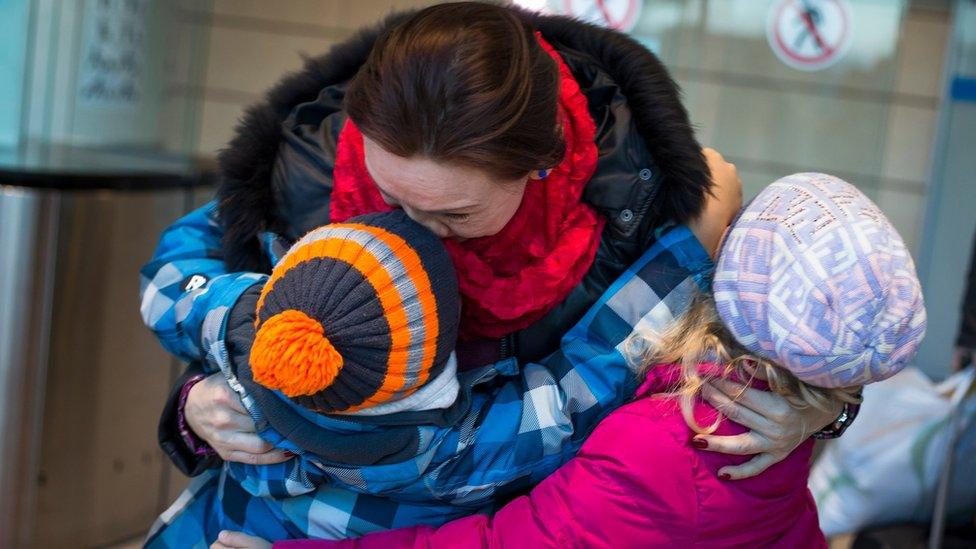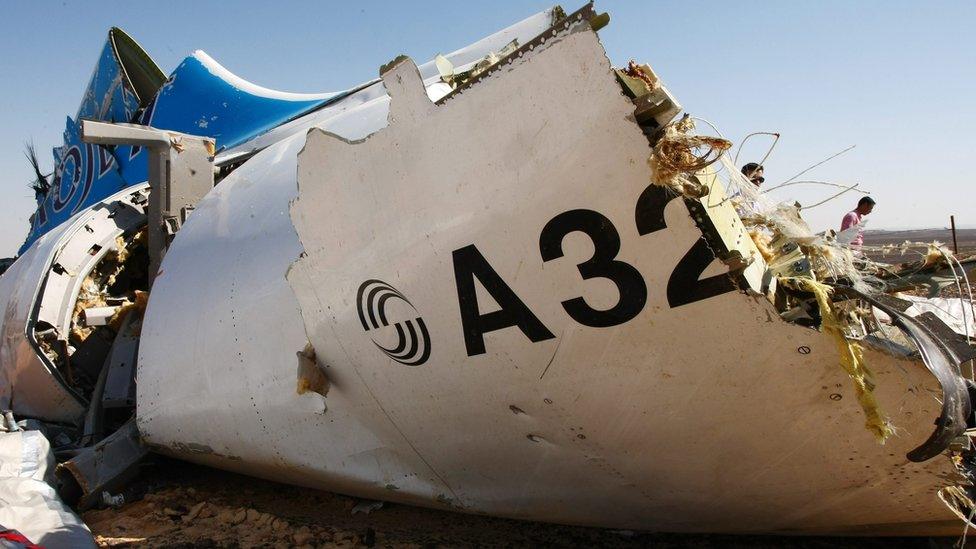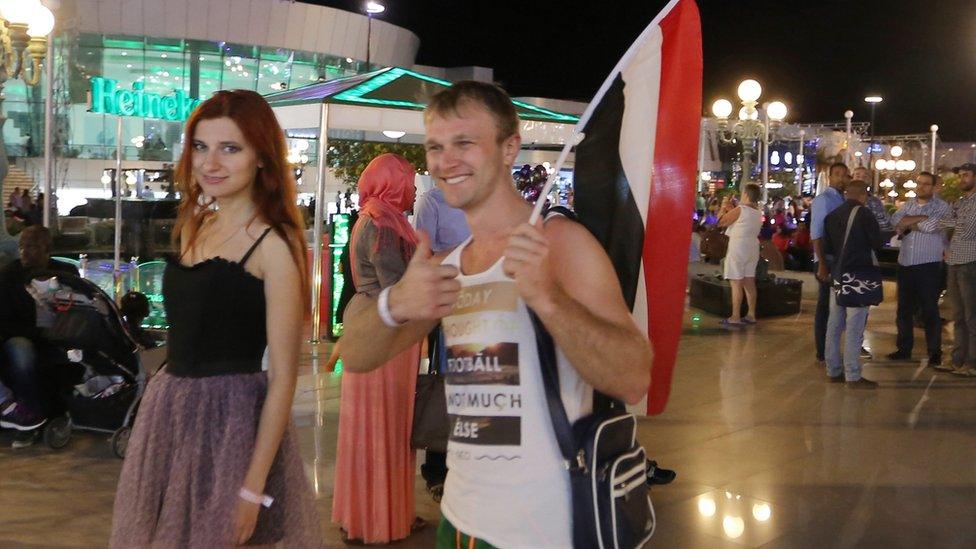Russia plane crash: '11,000 tourists back' from Egypt
- Published

This woman arrived at a Moscow airport from the Egyptian resort of Hurghada on Saturday
Russia says it has flown 11,000 tourists home from Egypt in the past 24 hours, and more will return on Sunday.
Moscow announced on Friday that it was suspending all flights to Egypt after a Russian plane crashed in Sinai - having initially urged caution towards claims a bomb may have brought down the jet.
Dozens of special flights were put on for tourists wanting to go home.
A remembrance service has been held in St Petersburg for the crash's 224 victims, most of whom were Russian.
The main bell of the northern city's St Isaac's Cathedral tolled 224 times - once for each of the victims.
Meanwhile, another Russian plane with the victims' remains - the fourth since the crash on 31 October - landed at St Petersburg's Pulkovo airport, as the identification process continues.
The UK has flown 3,500 travellers out of Sharm el-Sheikh, from where Metrojet Flight 9268 took off for St Petersburg on 31 October.
The UK halted flights to and from the resort on Wednesday, citing intelligence concerns that the Airbus may have been downed by a bomb.
In search for answers, British ties to Egypt take a hit
Airport security rethink 'may be needed'
Could Islamic State have bombed Flight 9268?
What we know about the Sinai crash
Russia criticised the UK decision - but then on Friday announced it was stopping all flights to Egypt. Russian President Vladimir Putin signed the temporary flight ban into law on Sunday.
Russians make up close to one in three of all foreign tourists in Egypt, most of them holidaymakers visiting resorts such as Sharm el-Sheikh and Hurghada.
In 2014, about three million Russian nationals stayed at Egypt's resorts.
The bells of the St Petersburg's cathedral tolled once for each victim of the plane crash, as Steve Rosenberg reports
At the scene: Steve Rosenberg, St Isaac's Cathedral, St Petersburg
The scent of burning incense filled the cathedral, as an Orthodox priest chanted prayers for the dead.
A choir sang solemn hymns, while some in the congregation held candles and flowers.
Then the cathedral bell tolled. Every 10 seconds it rang out again, until it had sounded 224 times, a mark of respect for each of the victims of the plane crash.
One man told me he would have liked President Vladimir Putin to be there, since Mr Putin is a native of St Petersburg. The Kremlin leader did not attend.
If it was a bomb that destroyed Flight 9268, that would undermine the Kremlin's narrative: that Russia's military operation in Syria is designed to make Russians safer at home.


Officials said there were about 80,000 Russian tourists in Egypt when Moscow took the decision to stop flights.
Holidaymakers were flown back without hold luggage, mirroring the restrictions placed on British tourists being repatriated.
The British Foreign Secretary Philip Hammond said the delays to flights for Britons stranded in the Red Sea resort were caused by the much higher level of security checking being imposed.

Russians make up about a third of all foreign visitors to Egypt
"We are running up against the capacity limits of the airport given the additional measures that are being applied and that's what's causing the delay to some flights," he told the BBC's Andrew Marr Programme.
At most, people will experience a delay of two or three days, he added.
An Egyptian member of the international team investigating the crash has told Reuters that they are "90% sure" that a sound heard in the last moments of the recording of the plane's cockpit voice recorder was an explosion caused by a bomb.
On Saturday, the head of the investigating team, Ayman al-Muqaddam, said it was too early to say what caused the plane to break up in mid-air.
Militants in the Sinai Peninsula affiliated to Islamic State have claimed that they brought down the airliner, but they have not said how.

Sinai Province militants
Most active insurgent group in Egypt, with 1,000-1,500 members
Operating in Sinai Peninsula since 2011
Pledged allegiance to Islamic State group in November 2014
Carries out suicide bombings, shootings, beheadings; dozens of Egyptian soldiers killed.
